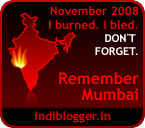The debate between Love Marriage and Arranged Marriage is an old one and is in existence since time immemorial. In the olden days, even royalty and politicians used to go in for an arranged marriage to ensure their status and wealth in society. Arranged marriage is a common phenomenon in countries like India. However, the Western world frowns upon such a practice and openly advocates love marriage.
This blog entry (being submitted as an entry for the Indiblogger contest
www.facebook.com/LoveYaArrange) shall try and examine the pros and cons of both the approaches.
Arranged marriage, as a concept, is based on the premise that your elders know what is best for you and can take a better decision than you. Also, in olden times, when marriages used to happen at a young age, the groom and the bride were not mature enough to take such an important decision of choosing their life partner. Additionally, since in the earlier ages, a lot of women were not going in for higher education or forming a large part of the workforce, it was difficult to fall in love and ensure its culmination into marriage (which is largely the scenario these days). Also, especially in India, since religions/castes/sects/sub-sects/languages, etc. plays such a pivotal role in our day-to-day living, fixing a marriage with a person from the same religion/caste, etc. was being practised.
The main advantage (if you can call it that) in an arranged marriage is that you can explore a completely new relationship with your spouse as you go along on the journey of life. Everything is an adventure, everything seems special and new. Also, since your parents have fixed the relation, you have their unstinted support when it comes to your family life. Adjustment issues might be minimized based on the religion/caste/language criteria. Also, you are more willing to adjust and ensure not to hurt your partner since both of you are learning each other’s habits and way of living on almost a daily basis.
The argument in favour of arranged marriage can also be made based on the fact that so many of them are working successfully since time immemorial. And the husband and wife have truly learned to love each other after marriage.
In recent times, due to globalization, increased presence of women at the workforce/in higher education and the youth being more aware, love marriages are gaining prominence, even in a traditional society like India. Firstly, the young are marrying at a relatively later age, after having established themselves financially. Thus, they believe they are mature enough to select a life partner themselves and not depend on their family.
Secondly, there are enough opportunities available to today’s youth to mingle with each other, fall in love and eventually get married. Love marriages usually happen during Engineering/MBA/CA days or when two people work together on a prolonged basis. Being with each other almost day in and day out exposes you to the person’s true nature – their likes/dislikes, their strengths/weaknesses, their temper, their thinking, etc. Based on the same, a judgement can be made about whether one is compatible with the other.
A break-down of religious/casteist sentiments has led to a surge in inter-caste/inter-religious marriages in recent times. Today parents are also more open-minded in accepting such alliances compared to previous times.
One of the primary negatives associated with an arranged marriage is the inability to adjust. As there is not much time for the couple to interact before marriage, in case one of them has very shocking qualities/habits, it may become difficult for the other to adjust. Also, it is generally believed that both the groom and the bride are on their best behaviour before marriage and the real nature comes out into the open only after marriage.
It is also usually observed (though not necessarily) that the practise of arranged marriage is associated with dowry. The boy’s parents demand a lot of things pre-marriage and the girl’s family, in a bid to placate them, provide the same. This, however, continues throughout the lifetime which may put the girl’s family under a heavy burden.
The negatives around love marriage usually center around the fact that either the boy or the girl “change” their habits after marriage. Since both have spent a reasonable amount of time with each other before getting married, they believe they know each other in and out. But, as they say, a husband is different from a boyfriend. This may lead to disputes between the couple. The willingness to adjust is minimal for the same reasons stated above.
Sometimes, in case either of the families does not support the marriage for whatever reason, the couple may find it difficult in a trouble situation. Also, though society is slowly becoming open-minded, some marriages may still be frowned upon or openly discouraged (the recent incidents of the khap panchayats indulging in honour killing or certain families ensuring the boy/girl are murdered are extreme consequences of a love marriage).
To sum up, each of the approaches has its own merits and demerits. To say that one approach works and the other does not would be incorrect. At the end of the day, it is for an individual to decide whether s/he wants to go in for an arranged marriage or a love marriage. Jane Austen's quote gives a fitting gist: "Happiness in marriage is entirely a matter of chance. If the dispositions of the parties are ever so well known to each other or ever so similar beforehand, it does not advance their felicity in the least. They always continue to grow sufficiently unlike afterwards to have their share of vexation; and it is better to know as little as possible of the defects of the person with whom you are to pass your life."














